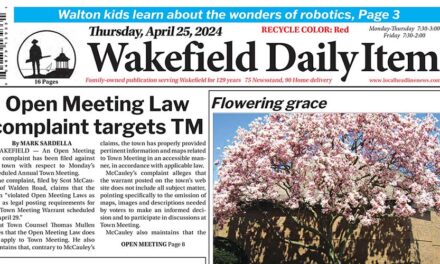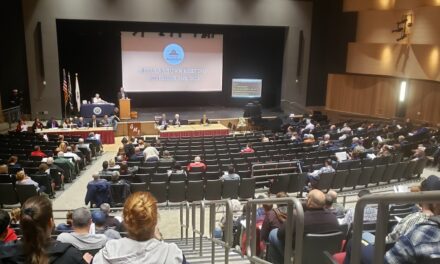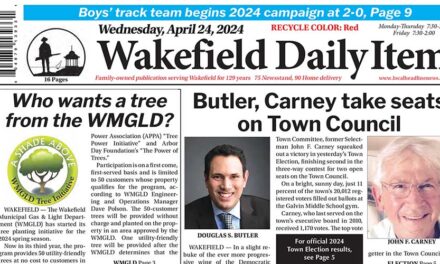Published in the August 3, 2015 edition
BOSTON – State Senator Jason Lewis (D-Winchester) announced Friday that gubernatorial vetoes of funding for numerous priorities that are important to the communities of the Fifth Middlesex District have been overridden in the Massachusetts legislature, ensuring that funds for these priorities will be included in the Fiscal Year 2016 state budget. The state budget remains in balance and fiscally responsible.
Among the priorities on which Lewis played a key role in overturning vetoes were funding for kindergarten expansion grants, support for unaccompanied homeless youth and appropriations for Zoo New England, the non-profit that operates the Stone Zoo.
Kindergarten expansion grants provide support for communities to expand to and sustain full-day kindergarten in public schools; this is a key priority because of the proven impact full-day kindergarten has on closing achievement gaps and helping young people meet their full potential. Support for unaccompanied homeless youth funds the creation of housing and wraparound services for homeless young people who are outside the care and custody of a parent or legal guardian, as well as the implementation of a coordinated statewide response to address youth homelessness. Governor Charlie Baker had vetoed most of the $16.6 million allotted for kindergarten expansion grants and the entirety of the $2 million committed to unaccompanied homeless youth.
“I am pleased and relieved that the Legislature has acted swiftly to overturn the Governor’s disappointing vetoes of these vital priorities,” said Lewis. “The Commonwealth should do all it can to protect children and provide opportunities to allow them to maximize their potential, which are the purposes of programs like kindergarten expansion grants and support for unaccompanied homeless youth.”
Governor Baker had also reduced by $1 million the funding allocated for Zoo New England, which would have reduced resources available to the Stone Zoo, which is currently going through a challenging re-accreditation process. Further, the governor had attempted to cut over $2 million from the appropriation for the Massachusetts Cultural Council but the Legislature overturned that veto as well, recognizing that our communities’ local cultural councils provide not only cultural vibrance to our cities and towns but also important economic benefits.
In addition to these regional priorities, Lewis said that funding for a number of important local priorities was protected in the House and Senate from gubernatorial vetoes. Among the local priorities that Baker vetoed but whose vetoes were overturned by lawmakers, include: A $100,000 allocation for educational programming for homeless children through Malden’s Housing Families organization; a $75,000 appropriation for maintenance to Melrose’s Beebe Estate, one of the city’s vibrant cultural centers; $25,000 committed to the Town of Reading for safety upgrades to the town’s recreational parks, playgrounds and athletic fields; a $50,000 commitment to the Town of Stoneham for a substance abuse coordinator to strengthen efforts to combat drug abuse and addiction, and, a $100,000 allocation to the Town of Wakefield to advance efforts to move underground electrical and telecommunications cables around Lake Quannapowitt, which will both further beautify the area and make the cables’ power and connectivity more reliable, enhancing local economic development opportunities for Wakefield’s burgeoning tech sector.
“My top priority as State Senator will always be to strongly advocate on behalf of the communities I represent,” said Lewis. “I’m grateful for the efforts of Representatives Brodeur, Day, Donato, Dwyer, Jones, Ultrino and Wong and that together we were able to ensure that funding for important local priorities would be preserved in the FY’16 state budget.”
Following the issuance of budget vetoes by Baker, vetoes are first taken up in the state House of Representatives for override votes. Vetoes that receive a two-thirds override vote in the House are then sent to the Senate for a vote. Vetoes that receive a two-thirds override vote in the Senate are then fully overturned and the vetoed item is restored in the state budget.




